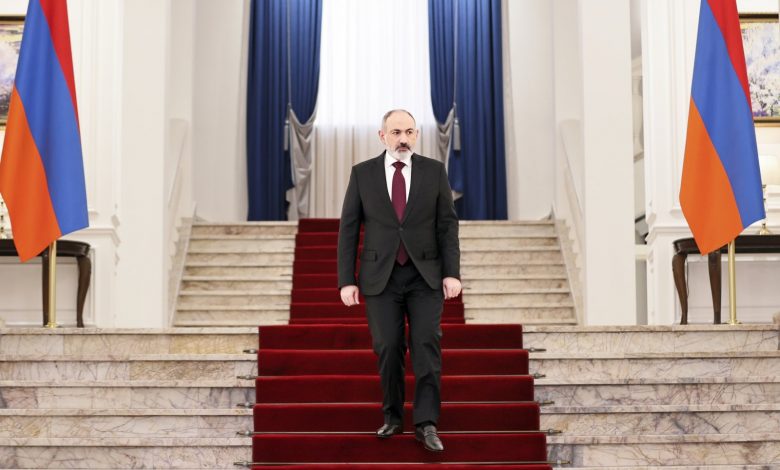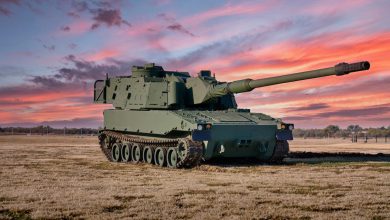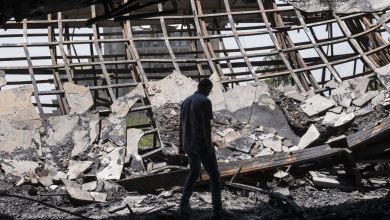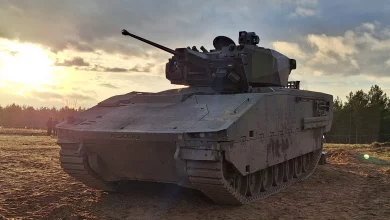Armenia cancels military drills with Russia amid tensions

Amid ongoing tensions, Armenian Prime Minister Nikol Pashinian announced that his country would not hold joint drills with Russia this year.
Pashinian’s announcement came after the leader of the ex-Soviet republic criticized Moscow and the work of Russian peacekeepers in the South Caucasus, which has been plagued for decades because of fighting between Armenia and Azerbaijan over the former’s occupation of the latter’s lands.
Speaking to reporters, Pashinian said he saw no reason for the Collective Security Treaty Organization (CSTO) to stage military drills in Armenia this year, saying that they are “inappropriate in the current situation.”
“These exercises will not take place,” he told reporters.
“Armenia does not believe it is expedient to conduct CSTO exercises in the republic this year.”
Analysts say Russia, distracted by its protracted war in Ukraine, is losing influence in the Southern Caucasus after decades of playing a power broker’s role.
Pashinian implied Russia, which Armenia had thought of as its “number one ally,” had let his country down. Referring to the 2021 incursion, Pashinian said: “Armenia expected concrete actions from its Russian partners and other partners in security.”
“This issue is important from the point of view of building further relations,” he added.
Headquartered in Moscow, the CSTO groups Russia and the former Soviet republics of Armenia, Belarus, Kazakhstan, Kyrgyzstan and Tajikistan. The security alliance said Tuesday it was looking for other locations for the exercises.
Meanwhile, Kremlin spokesperson Dmitry Peskov called Pashinian’s announcement “a rather new statement.” “In any case, Armenia is our very close ally,” he said.
“We will continue the dialogue, including those issues that are now very complex.” Analysts have pointed to Russia’s unwillingness to engage in conflict with Türkiye and Azerbaijan in the Caucasus.
Pashinian has also repeatedly accused Russian peacekeepers of failing to protect ethnic Armenians in Karabakh and called for a multinational peacekeeping force to step in.
As part of the 2020 cease-fire, Russian peacekeepers are responsible for maintaining security over the link, referred to as the Lachin corridor.
Lachin province, which lies between Karabakh and Armenia, was the last of the three areas on the rim of Karabakh that Armenian forces surrendered in December 2020. Russia deployed nearly 2,000 peacekeepers for at least five years to ensure safe transit across the region, to monitor the peace deal and to help refugees return.
But travel across the Lachin corridor has been blocked since Dec. 12 by Azerbaijani activists, who demanded access to what Azerbaijan has described as unlawful mining sites in Karabakh. Armenian authorities have described the blockade as part of Azerbaijan’s efforts to extend its control over the region and urged the Russian peacekeepers to unblock the road.
But Azerbaijan rejected Armenia’s accusations that it closed the Lachin corridor, indicating that Russian troops were blocking the road. Azerbaijan’s move has left Russia in a precarious position. Armenia hosts a Russian military base and Moscow has been the country’s top ally and sponsor. However, Kremlin also has sought to maintain warm ties with oil-rich Azerbaijan.
With its attention focused on the fight in Ukraine, Russia has taken a wait-and-see attitude on the Lachin corridor blockade, angering Armenia.
After the Russian peacekeepers’ five-year mandate is over, Armenia could invite U.N. peacekeepers to come in “if Russia fails to fulfill its function to ensure security for the population of the Karabakh region,” Pashinian said.
The Russia-brokered 2020 peace deal also called for the creation of a transportation link between Azerbaijani and its Nakhchivan exclave via Armenian territory. Azerbaijani President Ilham Aliyev accused Armenia on Tuesday of reneging on its promise to provide such a transit corridor.
“Whether Armenia wants it or not, it will be implemented,” Aliyev said in televised remarks, describing the corridor to Nakhchivan as Azerbaijan’s “natural right,” adding that Azerbaijan has no plans to wage another war against Armenia.
Peskov previously rejected a claim by the secretary of Armenia’s Security Council that Moscow had pressured Armenia to join a union of Russia and Belarus.
Commenting on the claim Tuesday, Pashinian said that Moscow had made no official request to that effect, noting that “the reality isn’t as simple as it seems.”
He added: “Sometimes, it’s not the text but the subtext that needs to be considered.”
“Armenia’s sovereignty is an absolute value,” the prime minister asserted.
Relations between the former Soviet republics of Armenia and Azerbaijan have been tense since 1991 when the Armenian military illegally occupied Karabakh, a territory internationally recognized as part of Azerbaijan, and seven adjacent regions.
Clashes erupted on Sept. 27, 2020, with the Armenian Army attacking civilians and Azerbaijani forces, violating several humanitarian cease-fire agreements.
During the 44-day conflict, Azerbaijan liberated several cities and around 300 settlements and villages that Armenia had occupied for almost 30 years.
The fighting ended with a Russian-brokered agreement on Nov. 10, 2020, which was seen as a victory for Azerbaijan and a defeat for Armenia.
However, the cease-fire has been broken several times since then.





